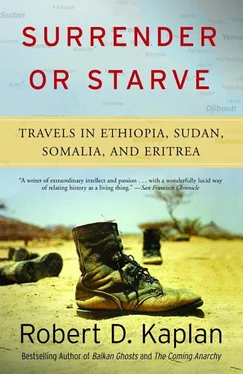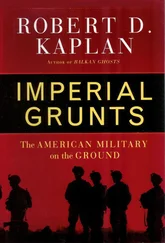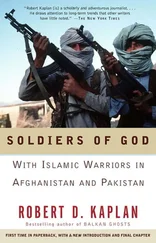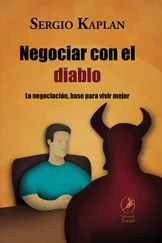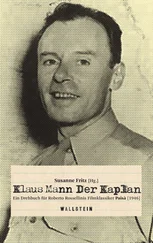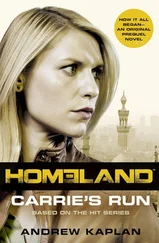For the United States, Sadiq al Mahdi’s election as prime minister was the only positive development in the midst of all this humbling chaos. But anyone who had ever spoken with Sadiq and his followers at length could have foreseen that this was a misplaced hope. My introduction to the political values of Sadiq al Mahdi came on a September night in Khartoum, in the late summer of 1985, at the Syrian Club, where I and Jonathan Steele, a senior foreign correspondent for The Guardian, had been invited for dinner in order to meet several Umma party notables, in preparation for our interview with Sadiq. Over hoummous, tehina, delicious goat’s cheese, and other delights of Middle Eastern cuisine we talked for several hours around a simple foldout table in a garden under the stars. I do recall spending almost all of the time discussing three subjects: the Umma party’s strategy in the elections the coming spring, the civil war in the south, and Islamic law. Regarding the civil war, I remember thinking that our hosts were making no attempt to empathize with the feelings of non-Moslem Africans in the south of the country or to even accept the fact that only half of Sudan was Arab. The subject of the famine, I believe, never was raised by our hosts. When Steele or I brought it to their attention, a few words were uttered, and that was that.
Steele, for some reason, could not be present at the interview with Sadiq. So I met with Sadiq alone, in the dim salon of his villa on the other side of the Nile in Omdurman. We spoke for about an hour. His sharp gaze, white turban, graceful, gesticulating hands, and excellent English made quite a regal impression. Sadiq certainly seemed to have an aura about him, and he sometimes spoke with poetic elegance: “democracy in Sudan is a lone bird surrounded by vultures interested in its flesh.” On the question of Islamic law, he was intelligent and subtle. He said that although drinking alcohol was immoral according to Sharia precepts, it need not be illegal for those who do not agree that it is immoral.
On the famine and the future of the peasants Sadiq showed little interest, however. His answer to my queries about these issues came in a single sentence: “it is no longer a serious problem because international aid has been forthcoming.” He considered famine a problem the wealthy West was obligated to solve, thereby leaving him free to deal with other matters, such as Sharia law and the war with the SPLA. As to the African southerners, he appeared to have no better understanding of what really bothered them than did his Umma party colleagues with whom I had met several nights before. I had the distinct feeling, which many other foreign observers also shared, that in all the years of his intellectually active London exile, Sadiq had not formed a specific blueprint of what he wanted to do once he returned to power. In short, he was very much the quintessential Arab politician—a man who used flowery speech to maneuver around difficult and complex issues without confronting them head-on.
Like every Arab ruler, Sadiq never seemed to doubt the primacy of his own ethnic and religious group over others in the nation. This was no particular flaw for a politician in Libya, Syria, Jordan, or other Middle Eastern countries. But fate had cast Sudan as a polity that was ethnically and religiously split to a degree greater than any of these other places. Sudan lay across the fault line separating the Arab and African worlds, but its Arab politicians, of which Sadiq was typical, refused to countenance this fact. Sadiq also had one more unfortunate trait that was typical of his part of the world: he was an urbanized landowner with a demonstrated lack of interest in the problems of the peasants. All the tragic weaknesses of Sudanese society were summed up in this most respected of Sudanese politicians.
Once Sadiq assumed power, absolutely nothing changed. It was as if General Swareddahab—an honest, well-meaning, but completely ineffectual man—never had departed. Sadiq simply made no impact. Order broke down further. Strikes remained common. Ministerial directives counted for little, and bureaucrats lower down were not listening to those above. Advice from the International Monetary Fund was ignored. Subsidies and commodity price-fixing, which virtually stole income from peasant farmers, continued. Import-export controls increased, and the currency remained overvalued. In their speeches, Sadiq and the other members of the cabinet hinted at all the right measures, but deeds never followed. Said a Western aid expert, “We don’t see anything resembling a rational economic plan that could serve as a reference point for donors.” The prime minister’s policy seemed to consist of making trips abroad in order to hold out the begging bowl. He tried Moscow and Tripoli first, looking for aid and help against his nemesis, Garang and the SPLA. In Moscow Sadiq got little, except a promise for deliveries of gas containers and soybeans, which some people in Khartoum said, only half-jokingly, were radioactive. The Soviets, who had a larger embassy staff in the Sudanese capital than the British had—but did no relief work—were playing it smart. Why should they supply arms and substantial assistance to a sinking ship, whose descent was being deliberately quickened by its Libyan and Ethiopian allies?
The Ethiopian air force had been dropping weapons and other supplies behind SPLA lines inside Sudan, which was helping to tip the balance in the civil war more and more in favor of Garang. In mid-September 1986, Colonel Gaddafi made his second visit to Khartoum since the overthrow of Nimeiri. Several hundred Libyan security personnel, each armed with both a pistol and an assault rifle, preceded him unannounced and without bothering to get airport landing clearance. Throughout the visit, Libyan planes constantly were landing and taking off. Although Gaddafi’s retinue was disarmed of their assault rifles, no one knows if other arms entered the country.
But Sadiq’s slippery and insubstantial political style seemed to be perfectly suited to handling the Libyan threat. Sadiq dealt with Gaddafi the same way he did with all the Western diplomats, financial experts, and relief officials who came into his midst: he whispered sweet things in Gaddafi’s ears and did nothing. A less experienced and less sophisticated politician might not have been able to generously accept Libyan aid while keeping Gaddafi at bay the way Sadiq did. In this regard, if in no other, the great-grandson of the Mahdi served his country well.
After Sadiq’s visit to Washington in October 1986, about fifty of the U.S. personnel who had been evacuated the previous April were allowed by the U.S. State Department to return to Sudan with their adult dependents, which meant children had to be left behind. It was an impossible situation and reflected the ambivalence of the Washington bureaucracy to the atmosphere in Khartoum. Although the Libyan presence seemed to be diminishing slightly, Sadiq had not lived up to his promise to eject several known Libyan terrorists who were in the Sudanese capital. Because Sadiq also had not lived up to his pledge to present Western donors with an economic reform and development package, Washington took another half-measure: it released $71 million of money previously appropriated to Sudan in order to pay for food imports, but refused to appropriate any more funds.
As 1986 drew to a close, it was God who came to Sadiq’s rescue in the form of the second bumper harvest in two years. Starving Sudan suddenly was drowning in grain, although as usual a lot of it was in the hands of rapacious merchants instead of hungry peasants. Nevertheless, in the opinion of most Western observers, the extra food stocks gave Sadiq another year in which to do nothing before the hangman appeared at the door.
Читать дальше
